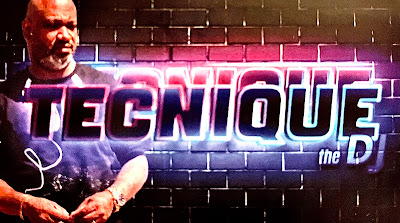With neither complaint, nor grumbling, about the added responsibility (and without interrupting his playlist), that good brother asked what I wanted to sing, searched his files, found all of the songs, added some slack to the mike cord, extracted the lead vocals from the tracks, and handed me a set of headphones to check the intros. The way the music was pulsating, kind of reminded of that old Memorex ad.
He even asked if I had a request. “Sure!”, I said. “Stevie Wonder’s “As”, and without missing a beat, he slipped “As” seamlessly into the ending of Chaka’s “Ain’t Nobody”.
If you know me, you know I ADORE the flow and freedom of live music, and the magical connection between musicians and singers, when everybody is on one accord, but in some settings, are well-played performance tracks becoming king?
Why does it seem that live music isn’t valued as much?
Why so many tales of shady business practices, where bands are being paid poorly, or stiffed altogether?
Are competent DJ’s, and their mastery of technology, slowly making live music obsolete?
“It’s not a priority.”
“Lack of knowledge.”
“They don’t think it’s worth it.”
“Lack of resources.”
“Lack of will.”
“They don’t care.”
“It’s not their area of expertise.”
“No one’s complaining.”
“Space constraints.”
“They don’t have to.”
These are the repeated answers to my question concerning the lack of investment in sound engineering, in venues (like churches, school auditoriums, and funeral homes) where sound matters—or should matter—but are they also answers to why audiences are hearing what musicians played and recorded, but not seeing musicians play?

























No comments:
Post a Comment